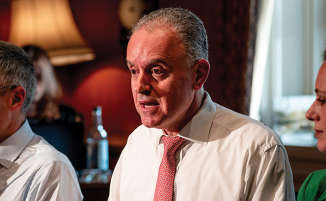How would you describe the current state of the Turkish legal market?
In two words, ‘fragile’ and ‘optimistic’. For the last half decade Turkey has been busy with national security, all types of elections, geopolitical developments and positioning, global mind games and, consequently, a recessed economy. Such uncontrollable developments are naturally pressing on business law and the legal market. Due to the above stated facts there have been several conditions precedent over the investment climate that negatively affect the legal market.
Given Turkey’s recent economic problems and the government’s new 5% growth target, how is this affecting your clients and what adjustments are they making given the current investment/economic climate?
All clients have been repositioning their status while revising business plans and budgets as the conditions are redealt with. Export and new markets are main ways out for manufacturing businesses as the Turkish lira has been devaluing over the past year. As a general overview, apart from clients’ short term, midterm loans have been restructured in a lot of big names in the Turkish market where our clients may have benefited. Clients aim to be transformed to sharp sharks from big whales by trying to increase profitability rather than revenues via certain measures such as cost cutting, reduction of headcount, prolonging maturities and other measures over procurement.
How can you and your clients mitigate the risks should there be an economic downturn?
Generally, they have been extremely diligent over their risk management in order to avoid potential unexpected disputes. They reduce national sales since there may be collateral problems with their dealer or clients. Therefore, they have been transformed conservatively by reducing their appetite for risk. Since collection and maturity are two big problems in the national market, they try to increase their liquidity. As stated above, they also experience certain day-to-day measures when trying to increase their export, while exploring new markets as much as possible. Furthermore, potential collaborations, alliances and partnership opportunities have been increased, since clients need market expansion.
What practice areas are busy and why, and which are the biggest originators of work, and why?
In the beginning of 2019, we have been appointed by two leading conglomerate companies in Turkey active on wide areas of business such as FMCG [manufacturing, fast-moving consumer goods], energy and logistics. As we also advise them on dispute resolution, litigation and employment, we took over more than 3,000 files from ten different law firms. That means our dispute resolution, litigation and employment departments have been very busy.
As a compliance department, we have also been appointed by several worldwide big names on wide areas of practice such as technology, FMCG, entertainment and cryptocurrency. Therefore, the compliance team is always busy and this is also an optimistic development regarding Turkey, with newcomers considering entering the market.
The M&A department has always been regularly active, especially for the last three to four years as we have been into ten law firms on deal counts under reputable tracking platform records. Despite the negative developments stated above, the first two to three quarters of the year were slow, however there have been optimistic developments that will keep our teams busy.
What changes have you noticed this year in the type and origin of work?
M&A work has slowed down due the stated political, geopolitical and financial developments, while dispute resolution, employment and compliance work have been substantially increased. We have the advantage of being a full-service firm with a strong, multi-skilled team.
Do you anticipate a resurgence in infrastructure/project finance?
Not in the short term as the market has reached saturation. However, there may be a spring in the mid term.
How is the local dispute resolution market – what types of disputes are prevalent?
Always busy even if the clients try to reconcile and diligently mitigate the risks. Our dispute resolution department both focuses on mass commercial disputes and employment disputes from well-respected clients, but also a high number of niche, unique cases that may turn into litigation battles.
The Turkish central bank’s drive to reboot growth, slashing benchmark rates by 7.5% since July and offering incentives for banks to offer credit – what impact is that having on bank advisory work?
Unfortunately, that was not efficiently reflected in the real market, excluding restructurings.
Which sectors are of most interest to M&A/private equity investors?
Export-oriented manufacturing, technology, e-commerce, services, energy and F&B [food and beverage].
What Turkish legislation has provided an impetus to foreign direct investment (FDI) and in which sectors?
There are certain legislations that were brought in for simplifying the investment climate, employment incentives and increasing free zones. However, there were also legislative developments questioned by foreign investors, such as limitations on contracts with foreign currencies, which kept legal world very busy. Currently VW’s choice of Turkey as a greenfield hub will certainly be a great indicator for FDI.
As the Turkish energy sector is being rapidly reshaped, what opportunities does this provide?
The market has been energetic for the last two years due to national tenders on renewable energy. Such tendered projects will most probably be the subject of takeovers that will increase the energy M&A market.
What impact is there for Turkish companies in compliance with global regulations and new national regulations, eg Turkish Data Protection Law, modelled on GDPR?
Data protection compliance in line with GDPR has been a trending topic since 2016. However, apart from highly affected sectors such as healthcare, banking, insurance and retail, international companies and some conglomerates have high corporate governance and awareness levels. More than 50% of the Turkish business world is not yet compliant with legislations. That has kept a new legal services market despite the cost concerns of the business world, especially when considering the high amount of consequences in administrative, financial and legal due to non-compliance.
Vefa Reşat Moral, managing partner, Moral & Partners
T: +90 212 232 3595
E: resatmoral@moral.av.tr
Sponsored briefing: Q&A – Serdar Paksoy
1. Given Turkey’s recent economic problems, how is this affecting your clients and how can you help mitigate the risks?
Turkey has been going through a period of economic uncertainty since the summer of 2018, when a number of factors led to a sharp devaluation of the Turkish lira against major foreign currencies and a surge in inflation. These volatile economic conditions have affected Turkish companies’ profits as well as their ability to serve their foreign currency debt, resulting in the need for debt restructuring and corporate divestments, especially within large conglomerates. This also led to the issuance of legislation to protect the currency, imposing that certain contracts be denominated in Turkish lira or delimiting the circumstances in which Turkish companies can borrow in foreign currency. The ambitious economic agenda of the Turkish government, however, is expected to put Turkey back on a path of sustainable growth.
We help our clients adapt to the new environment by overhauling their contracts and credit arrangements in order to comply with the new legislation. When acting for foreign players looking to invest in Turkey, we advise on adequate provisions in the transaction documents meant to anticipate the impact volatile economic conditions could have on the agreed deal terms. These may address a variety of issues, such as currency fluctuations between signing and closing, the target’s need for recapitalisation to remain in line with statutory equity ratios, or the necessity to redesign the target’s debt structure.
The current conditions in Turkey also bring significant opportunities for those foreign investors who continue to see the country’s mid-to-long-term business case, with a sizeable growth potential compared to more developed countries in many yet-underpenetrated sectors of the economy. Given Turkey’s history of economic downturns followed by spectacular rebounds, some investment advisers also see the current period as offering attractive valuations for buyers with the prospect of sizeable returns when the market recovers.
2. How has this affected the flow of foreign direct investment, the volume of deals and dispute resolution?
The current economic climate has led foreign investors to be more cautious with their investment plans and the factors upon which they build their business case. We see a significant slowdown in PE investment, since the current market conditions will often not match their pre-defined investment criteria. Strategic investors, on the other hand, continue to see the country’s opportunities, all the more so when it comes to target companies with sales skewed towards exports, which benefit from higher revenue against lower costs as a result of the currency devaluation. Restructuring plans within major Turkish conglomerates can also put on the market potentially attractive targets, which would not otherwise have gone up for sale.
Investors will, however, proceed with caution. Combined with the fact that sellers’ price expectations can initially remain relatively high, this results in longer transaction processes compared to previous years, with negotiations sometimes dragging on for months or being halted several times before the parties finally reach an agreement.
‘The ambitious economic agenda of the Turkish government is expected to put Turkey back on a path of sustainable growth.’
3. Which practice areas are the biggest originators of work and why?
Corporate/M&A and dispute resolution remain the biggest originators of work, with M&A in particular holding itself at a fairly satisfactory level in view of current market uncertainties, as the practice is fed by large divestments and strategic opportunities. We do, however, see significant growth in debt restructuring and insolvency, compliance and investigations, as well as banking and finance work, all of which are driven by the impact of current economic conditions and the market players’ increased caution when proceeding with investments.
4. Do you anticipate a resurgence in infrastructure/project finance?
Although there has been a slowdown in infrastructure project tenders initiated by the government, we expect new tenders to be launched in the transport, healthcare and education sectors in the coming years. Some of these transactions will require sizeable project financing. Turkey has also set itself ambitious renewable energy utilisation targets, which will boost project finance activities in the country.
5. As a global downturn is increasingly possible, how well are Turkish companies positioned?
The Turkish economy remains strongly dependent on exports and foreign direct investment and the country would undoubtedly be affected by a global downturn. The previous major downturn in 2008 had shown that while Turkey’s banking system was at the time comparatively more robust than in Western economies due to strong capitalisation rules, the country was eventually affected by the crisis when the slowdown in its major export markets reverberated on the real economy.
Although the present situation may be riskier, with Turkey’s banking system already under tension due to the recent currency crisis, the Turkish economy’s resilience is noteworthy. Turkish companies may still benefit from a competitive advantage with a young, skilled and affordable workforce, and the growing ability they have demonstrated in recent years to export their strengths and know-how to new markets, such as African countries for the construction sector, and hedge their exposure to the local economy with investments abroad.
6. The Turkish central bank’s drive to reboot growth, slashing benchmark rates by 7.5%, and offering incentives for banks to offer credit – what impact is that having in bank advisory work?
Considering the liquidity of Turkish banks, we expect the lower interest rates to promote growth in the Turkish lending market across all segments, including retail and wholesale. The lower interest rates will also promote the refinancing market, especially in infrastructure projects. This being said, the lending landscape in Turkey is already quite busy with ECA [export credit agency] loans, trade finance, IFI [international financial institution] loans, sovereign borrowings and FI transactions.
7. Which sectors are of most interest to M&A/private equity investors?
Investors continue to be consistently attracted to the industrial and consumer goods sectors, as well as transportation and logistics. We also see foreign players increasingly seeking opportunities to invest in Turkish companies with a focus on emerging technologies, especially payment systems and communications technology, and believe this will be a key area of investment in upcoming years. Finally, there have been high-value entries in the Turkish financial sector from Middle East corporate groups, as well as some opportunities in the insurance sector, where a number of sizeable bancassurance arrangements will come up for renegotiation or new tender in upcoming years.
‘We see foreign players increasingly seeking opportunities to invest in Turkish companies with a focus on emerging technologies.’
8. As the Turkish energy sector is being rapidly reshaped, what opportunities does this provide?
Turkey is keen to bring a significant increase in its use of renewable energy in the coming years. These efforts will particularly materialise in the wind sector. The government is expected to announce a number of renewable energy resource zone tenders in the near future. These tenders should be smaller in size than the previous ones, meaning that the Turkish energy sector will offer more opportunities to a diversified group of investors.
9. What impact is there for Turkish companies complying with global regulations and new national regulations, eg the Turkish Data Protection Law, modelled on GDPR?
Given the significance of foreign investment in Turkey, many Turkish companies are well acquainted with the need to comply with global regulations, be it in the field of anti-bribery and corruption (especially FCPA [Foreign Corrupt Practices Act]/UKBA [UK Bribery Act]), international sanctions, data protection, corporate governance or financial reporting standards. Turkish companies with a foreign shareholder, or even a major foreign supplier, will often already apply global compliance standards in a number of areas.
The ongoing harmonisation of Turkish legislation with global regulatory standards is largely supported by the government as a tool to make the country an ever-more attractive destination for foreign investment and is generally welcome by local companies with the ambition to attract new investors despite the added burden on their internal processes.
The Turkish Data Protection Law provides a good example of this trend. Introduced in 2016, the new piece of legislation replaced hitherto scattered and little-enforced privacy regulations with a full-fledged data protection regime, giving companies two years to audit their data processing practices – in many cases for the very first time – and put them in compliance with the new law. This called for an abrupt change in culture, but as in most emerging markets corporates have been quick to adapt. While the legislator had deliberately opted to mirror the Turkish Data Protection Law on the 1995 EU Directive, rather than GDPR, in order to soften the impact of the new regime, we see that many Turkish companies have chosen to transition directly to the higher GDPR standards in order to boost their ability to do business on the international stage.
For more information, please contact:
Serdar Paksoy, managing and senior partner
Paksoy
Orjin Maslak
Eski Büyükdere Caddesi
No:27 K:11 Maslak 34485
Istanbul
Turkey
T: +90 212 366 4757
E: spaksoy@paksoy.av.tr
Sponsored briefing: New practice commenced in 2019 – current status of mandatory mediation in commercial lawsuits
Mehmet Selim Yavuz of Yavuz & Uyanık discusses the effects of the new rules
Prior to 2016, the Court of Cassation was the only high court reviewing rulings of the courts of first instance. This led to an enormous workload for the court; hence final rulings could only be reached after a seriously long period of time. The Turkish judicial system was reformed with a view to address this and the appellate courts were established in 2016 as a judicial authority between the courts of first instance and the Court of Cassation. Continue reading “Sponsored briefing: New practice commenced in 2019 – current status of mandatory mediation in commercial lawsuits”
Sponsored briefing: Celebrating the successes of the legal sector
Ahead of the 2020 Legal Business Awards, James Tsolakis of NatWest reports on the past year’s developments for the profession
As the deadline for the 2020 Legal Business Awards entries closes, there is much to reflect on and celebrate in the UK legal sector. Once again, NatWest is delighted to be the headline sponsor of the awards and recognise the success of the legal sector as it continues to support major global transactions, reshaping the commercial world domestically and internationally. Continue reading “Sponsored briefing: Celebrating the successes of the legal sector”
Sponsored briefing: 2019: diversity and new rules for Portuguese corporate issuers in debt capital markets
Diversity. This is a fair word to describe Portuguese debt capital markets in 2019. We have seen a bit of everything this year: new issuers, including Transportes Aéreos Portugueses, Sociedade Independente de Comunicação and Casais, SGPS, and from the public sector, the Autonomous Region of the Azores, frequent issuers, including Sport Lisboa e Benfica – Futebol SAD, Mota-Engil, José de Mello Saúde and Galp, and from new structures, including the combination of subscription and exchange offers to retail and institutional investors, and the segregation of books by types of investors (retail vs eligible counterparties and professional clients in retail offerings), and even a new prospectus regulation. Lastly, at the top of the list, new investors and alternative funding sources for Portuguese issuers. This is good news in a year that, on the regulatory front, turned a page with the enactment of the new EU Prospectus Regulation and related delegated regulations.
As from 21 July 2019, new rules were required to be followed in the preparation of the prospectus to be published when securities are offered to the public or admitted to trading on a regulated market. New rules were also adopted in respect of related advertisements.
Regulation (EU) 2017/1129 of the European Parliament and of the Council of 14 June 2017 (New Prospectus Regulation), although maintaining the essential structure inherited from its predecessor, introduced new requirements aimed at simplifying an issuer’s access to capital markets, notably frequent issuers or issues by small and medium-sized companies, and ensuring that the information contained in a prospectus is as useful as possible for its readers (potential investors).
Critical chapters of the prospectus, such as the summary and the section on risk factors, have also been affected. The summary was reduced and reshaped to be modelled as much as possible on the key information document, with the goal of making it shorter, simpler and easier for investors to understand. To achieve this goal, the language used in the summary should be plain and non-technical, presenting the relevant information in an easily accessible way. Following this route, summaries will become a more useful source of information for investors (notably retail investors), focused on providing key information that helps investors take more accurate investment decisions.
Rules regarding risk factors have also been amended and detailed. The main purpose of disclosing risk factors in a prospectus is to ensure that investors are aware of the major potential risks relating to the issuer and the securities, and that they make investment decisions based on their knowledge of these risks. In order to avoid long generic descriptions of risks that often serve only as disclaimers, the New Prospectus Regulation and related ESMA Guidelines require that the risk factors be limited to those which are material and specific to the issuer and the securities being offered or admitted to trading. The relevant risks are now required to be described adequately, organised by categories, and those considered most critical by the issuer should be presented first. The main reason for organising the description of risk factors according to these new rules is to present the information contained in a prospectus in an easily analysable, concise and comprehensible form. Whereas the above does not appear to constitute a great challenge for issuers, the need to assess (and eventually quantify) the impact of each risk on the issuer seems to be harder to address, notably because the information available may not be sufficiently reliable to be included in a formal document such as a prospectus. The New Prospectus Regulation and related ESMA Guidelines admit the use of a qualitative scale of low, medium or high, and precedents so far have shown that issuers tend to prefer this alternative.
Also of importance are the new rules in respect of advertisements, particularly the relevant required content. The word ‘advertisement’ is now required to be prominently included in any advertisements disseminated to potential retail investors, and legal disclaimers are required to include statements and recommendations to investors highlighting the need to read and consider the prospectus carefully before investing, rather than simply relying on the approval of a prospectus as a sign of endorsement of the securities being offered or admitted to trading. So far, these new rules have proven to be susceptible to being followed, although in some cases, notably television and radio advertisements or advertisements of more limited dimensions, the new rules have had an impact on the advertisement and its purpose.
The available experience shows that the changes introduced by the New Prospectus Regulation have been successfully handled by issuers and that complying with these new rules has neither discouraged the use of capital markets, nor affected timelines for the approval of a prospectus, notably in Portugal, where this responsibility falls on the Portuguese Securities Market Commission (Comissão do Mercado de Valores Mobiliários), as was the case in the first new prospectus-compliant public offering targeting the retail market – the combination of subscription and exchange notes issue launched by Mota-Engil in October. Therefore, with the benefits of a renewed legal and regulatory framework and of an environment where low interest rates facilitate access to funding, 2020 is likely to follow in line with the current year, promising continued intense activity and diversity.
For more information, please contact:
Pedro Cassiano Santos (pictured, left)
Partner and head of the banking and finance practice
E: pcs@vda.pt
Hugo Moredo Santos (pictured, centre)
Banking and finance partner
T: +351 21 311 3366
E: hms@vda.pt
Benedita Aires (pictured, right)
Banking and finance partner
E: bla@vda.pt
VdA
Rua Dom Luís I, 28
1200-151 Lisbon
Portugal
Sponsored briefing: Independent power projects in Africa
Miranda’s Nuno Cabeçadas (pictured, left) and Renato Almeida (pictured, right) discuss trends and developments in Angola and Mozambique
Throughout the world, one of the main goals of different governments and industry is to enhance the use of renewable energy. Africa, in general, is no exception, particularly Angola and Mozambique. In effect, in these two countries’ governments are working towards the promotion and acceleration of private and public investment in new renewable energy. As spelled out in the Angola Energy 2025 programme, one of the goals is to generate effective conditions of investment in new renewable energy, eliminating or dramatically reducing the distortion introduced by subsidies to fossil fuels, offering a suitable payback to investments, an appropriate mitigation of risks and a regulation that eases implementation and commits investors. Continue reading “Sponsored briefing: Independent power projects in Africa”
Sponsored briefing: Growing interest in asset deals
Yegan Liaje of Pekin & Pekin describes a rising interest in asset deals following a period of economic uncertainty in Turkey
Turkey has faced some serious financial challenges in recent years, such as high inflation, currency collapse and rising borrowing costs; however, surprisingly, these challenges have not dramatically affected the Turkish M&A market in terms of total transaction volume; though, we have noticed that it has affected the deal type in which investors have gained interest. In the last two years, we have experienced asset deals attracting more attention in the eyes of investors, despite share deals still having more advantages. Although investors do not have to bother with costly revaluations and retitles of individual assets, and can typically assume non-assignable licenses and permits without having to reapply for the same licenses and permits in share deals, asset deals also have some noticeable benefits.
Probably the most appealing advantage of asset deals is to enable buyers to pick and choose what they want to buy in the relevant target company without being bound to the whole company, all the unwanted remaining assets and certainly their unwanted liabilities. In other words, asset deals provide a playing field for investors where they can freely choose what suits best their business insight, in contrast to share deals where the shares of the target company are purchased with all attached shareholding rights and obligations, but the target company would remain liable against third parties for all historic claims.
On the other hand, asset deals do have some procedural disadvantages as well; each category of asset and liabilities subject to the relevant asset deal will be evaluated separately for consent requirements or formal perfection requirements rendering asset deals procedurally more burdensome. Furthermore, even where there are no consent requirements or formal perfection requirements, notifications would have to be provided to creditors in order to prevent good-faith payments made by creditors to the seller with respect to acquired assets, since under the Turkish Code of Obligations, such good-faith payments would discharge the debts of creditors who were not informed of the transfer. One more interesting point about asset deals in Turkey: as per the Turkish Labour Code, in the event that a workplace is transferred to another legal body on the basis of a legal transaction, the employment contracts that exist at the workplace at the date of transfer are automatically transferred to the transferee together with all rights and obligations. Therefore, buyers are not able to pick and choose when it comes to employees!
For more information, please contact:Yegan Liaje, senior partner, M&A
Pekin & Pekin
10 Lamartine Caddesi
Taksim 34437 Istanbul
D: +90 212 313 35 48
T: +90 212 313 35 00
F: +90 212 313 35 35
E: yliaje@pekin-pekin.com
Sponsored briefings: Africa
Sponsored briefing: Economic crisis and the popularisation of voluntary termination of labour contracts
Murat Uyanık of Yavuz & Uyanık discusses Turkish labour law developments
Turkey’s progress towards full membership of the EU had gained pace by the beginning of the 2000s. To achieve full legislative alignment with the EU acquis, the Turkish labour law was renewed and a new concept was introduced to the country’s labour law sphere: employment protection. Continue reading “Sponsored briefing: Economic crisis and the popularisation of voluntary termination of labour contracts”
Sponsored briefings: Turkey
Pekin & Pekin: Growing interest in asset deals
Yavuz & Uyanık Law Office: Economic crisis and the popularisation of voluntary termination of labour contracts
ELIG Gürkaynak Attorneys-at-Law: A leader in competition law
Matur & Ökten & Karayel Keßler Law Office: Med-arb – a hybrid approach to ADR and its applicability in Turkey
Yavuz & Uyanık Law Office: New practice commenced in 2019 – current status of mandatory mediation in commercial lawsuits
Çiğdemtekin Çakırca Arancı: Turkey M&A outlook – 2020 and beyond
Yazıcı Attorney Partnership: Notable developments in Turkey’s oil and gas policy
Cerrahoğlu Avukatlık Bürosu Barbaros Bulvarı: Mediation on the rise in Turkey
Yazıcı Attorney Partnership: Notable developments in construction law and practice
Apak Uras Law Firm: Termination of distributorship agreements
Vona Law Firm: Restrictive measures against Turkey by the EU
BTS & Partners: Obligation to register before the Turkish data controllers registry and maintain personal data-processing inventory
Gün + Partners Avukatlık Bürosu: Life sciences in Turkey
Paksoy: Q&A – Serdar Paksoy
Moral & Partners: Q&A – Vefa Reşat Moral



















